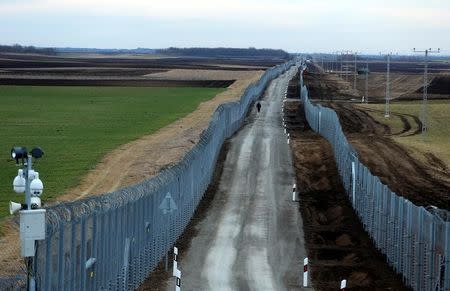EU and Hungary spar over migration ahead of court ruling
By Gabriela Baczynska BRUSSELS (Reuters) - The EU's executive and Hungary traded barbs over migration on Friday, ahead of a key European court ruling which is widely expected to deal a blow to the eastern Europeans' fight against hosting refugees. The refusal by Hungary, as well as its ally Poland, to take in a single asylum-seeker under a 2015 EU scheme has infuriated Brussels, Berlin and Paris, and many other EU states, triggering a broader debate in the bloc about key values. Hungary and another ex-communist EU state Slovakia challenged the obligatory relocation of refugees in the bloc's top court, the Luxembourg-based European Court of Justice (ECJ), and a ruling is due on Sept. 6. An initial indication from the court suggests the two east European countries are set for a resounding defeat, which could also lead to hefty fines being imposed. Ahead of the ruling, Hungary said it would ask the European Commission for about 400 million euros to cover half of the cost Hungary has incurred for border management. Hungary has fortified its borders with Serbia and EU state Croatia with a fence, police and troops, and says it is protecting the rest of EU from illegal migration. The Commission refused the request. "We do support border management measures at the external borders. This can be surveillance measures. It can be border control equipment... But fences, we do not finance," said spokesman Alexander Winterstein Some 1.7 million refugees and migrants have reached EU shores through the perilous Mediterranean crossing since 2014. Overwhelmed by chaotic arrivals in 2015, the bloc has tightened its migration policies and external borders, but many still see Hungary's fences as inhumane. They accuse Hungarian Prime Minister Viktor Orban of not showing enough solidarity with Italy and Greece, the main states of arrival in the EU, as well as Germany and other wealthy members of the bloc which take in most of those people who make it to Europe. Berlin on Friday reminded Hungary that solidarity should be reciprocal. "It's clear Orban is coming up with this 400 million euro demand to kind of offset it against the ECJ ruling. They are going to lose it badly, there is no other way," said a senior EU diplomat. (Editing by Richard Balmforth)



